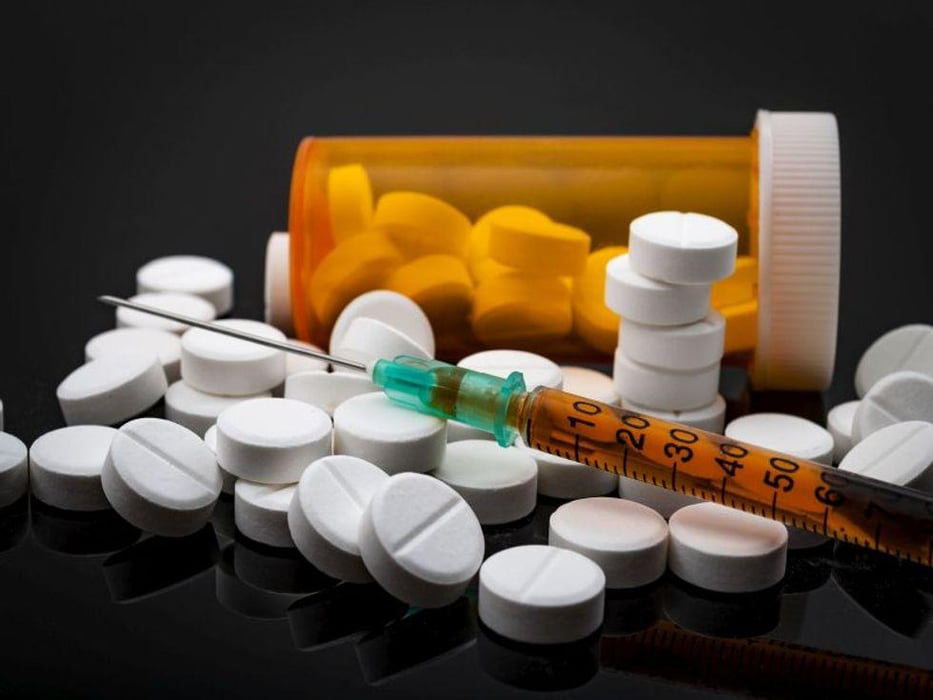3 Big Pharmacy Chains Must Pay $650 Million to Ohio Counties for Role in Opioid Crisis

THURSDAY, Aug. 18, 2022 (HealthDay News) -- Three of the country's largest pharmacy chains will have to pay $650.5 million over the next 15 years to two Ohio counties for their role in the opioid epidemic, a U.S. federal judge has ordered.
The decision follows a November jury verdict that found CVS, Walgreens and Walmart pharmacies continued to dispense significant quantities of the drugs even though there were obvious signs of abuse, the New York Times reported.
U.S. District Court Judge Dan Polster ruled that the pharmacies were responsible for one third of the cost the counties will need to deal with the damage the opioid crisis has wrought. Drug manufacturers and distributors are responsible for the other damages, he said. Polster has been the judge in more than 3,000 cases that involve opioid litigation.
Though Mark Lanier, a lawyer for the plaintiff, has said the counties would need more than $3 billion to deal with damage of the opioid epidemic, he was pleased with the smaller amount.
“These companies are rending the fabric of society apart,” Lanier said. “They should not only show remorse, they should show they need to rectify what they’ve done. And they won’t do it. So the judge is doing it.”
But Fraser Engerman, a spokesman for Walgreens, said the judge’s analysis was flawed.
“We never manufactured or marketed opioids nor did we distribute them to the ‘pill mills’ and internet pharmacies that fueled this crisis,” Engerman told the Times.
Walgreens and CVS both plan to appeal. On its website, Walmart issued a statement contesting the ruling.
"Instead of addressing the real causes of the opioid crisis, like pill mill doctors, illegal drugs and regulators asleep at the switch, plaintiffs’ lawyers wrongly claimed that pharmacists must second-guess doctors in a way the law never intended and many federal and state health regulators say interferes with the doctor-patient relationship," the Walmart statement read.
Meanwhile, CVS spokesman Michael DeAngelis told the Times that “pharmacists fill legal prescriptions written by DEA-licensed doctors who prescribe legal, FDA-approved substances to treat actual patients in need."
Judge Polster also ordered the companies to comply with strict monitoring and reporting rules that would show improvement for dispensing opioids and seeing potential abuse problems, the Times reported. This includes anonymous tip hotlines and policies for internal compliance committees. Both CVS and Walgreens already agreed to this in May when settling opioid claims in Florida, the Times said.
The ruling is a warning to the three companies in other pending cases, the Times reported.
“Just imagine the costs for the other 3,000 similar plaintiffs in this litigation, or the nearly 20,000 incorporated cities around the country. With those kinds of numbers, it’s no wonder so many defendants have chosen to settle out of court,” Adam Zimmerman who teaches complex litigation at Loyola Law School, Los Angeles, and closely follows national opioid litigation, told the Times.
Among earlier settlements are one between three large distributors and more than a hundred West Virginia counties and cities. That case settled for $400 million, the Times said.
“It’s a heck of a lot cheaper to settle than it is to lose at trial,” Lanier noted.
In his ruling, Polster said the defendants “largely ignored” his orders to submit remedial proposals, even after the jury finding. The pharmacy chains offered a three-paragraph description of drug take-back programs, while the counties submitted much more extensive plans.
More information
The U.S. Department of Health and Human Services has more on the opioid epidemic.
SOURCE: New York Times
Related Posts
Cuando el paciente hospitalizado y el médico hablan el mismo idioma, los resultados mejoran
LUNES, 11 de julio de 2022 (HealthDay News) -- Si ya es bastante difícil...
Un estudio nuevo halló que la cirugía para bajar de peso puede conducir a problemas matrimoniales
Was this page helpful?
AHA News: An Undetected Heart Attack Led to an Urgent Triple Bypass
THURSDAY, Dec. 16, 2021 (American Heart Association News) -- For more than three...
Encuentran el herbicida glifosato en la orina de la mayoría de los estadounidenses
MARTES, 12 de julio de 2022 (HealthDay News) -- Más del 80 por ciento de los...
